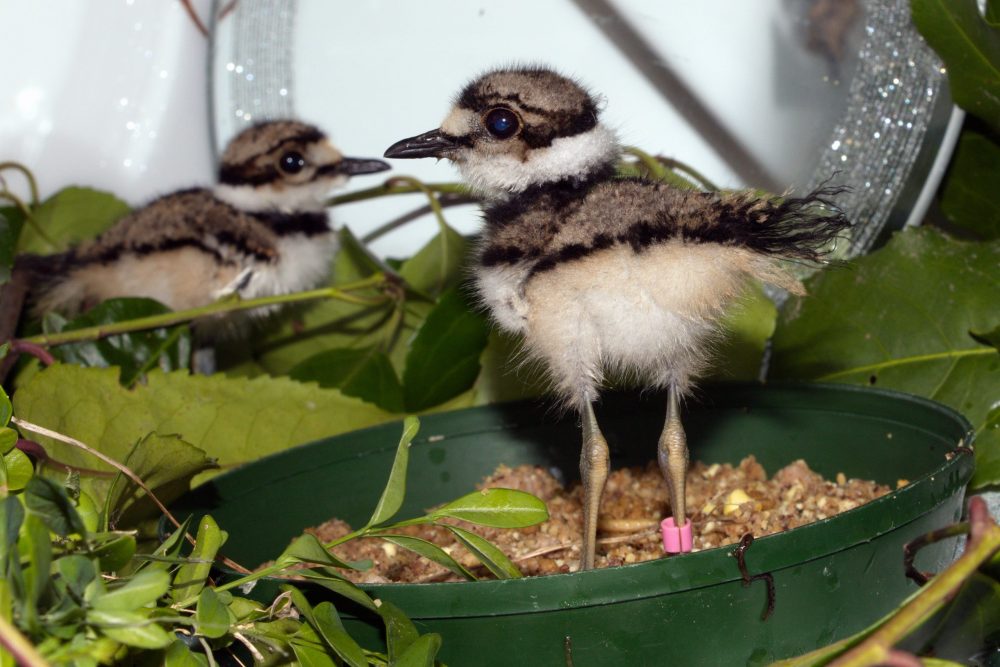Support Us
Since 1979 more than 140,000 animals have been treated by Wildlife Rescue.
Thanks to the support of individuals like you, Wildlife Rescue can provide a lifeline for animals in distress.
Spring and summer are a delicate time of year for ground-nesting birds like the Dark-eyed Junco, Hermit Thrushes, Sparrows, and Killdeer to name a few. One of the most common and easily forgotten human disturbances during spring is lawn mowing, which unknowingly harms wildlife, particularly ground-nesters!
Lawns provide important nectar and pollen for pollinators which is lost or minimized when we mow. Fields (grasslands and meadows) also act as important locations for food and breeding for wildlife. Continual mowing can reduce or remove valuable habitats and discourage many wildlife species from visiting your property.
Ground-nesting birds use the location of the ground to provide shelter to their young and ensure eggs stay within reach. Also known as scrapes, these nests are simple holes dug into the ground that are deep enough to hold the eggs, and materials such as stones, twigs and sticks are usually added after egg-laying starts.
Fledglings lack skills and flight feathers needed to make it on their own in the wild. They require their parents to help them build these essential skills and become healthy and independent before they are ready to be on their own. Some fledglings can be on the ground for 1-2 weeks as fledgling stages differ in every bird species.
Many ground-nesting birds, such as Killdeer, will nest in open areas, which can make them especially at risk of threats such as traffic accidents and poisonings from pesticides. Similarly, Savannah Sparrows use dread grasses and shrubbery to safely nest with their young, making them at-risk to human disturbance.

Young Killdeer brought in after their nest was accidentally disturbed
Found in open areas such as grazed fields, lawns, and athletic fields, Killdeer can be spotted both in the wild and in urban areas. They often choose wide spaces to nest and will even create multiple nests and choose the best one to confuse predators and keep them away from their young. Their scrapes are most often found in areas with little to no vegetation – so keep an eye out for these birds in parks, lawns, and golf courses!
Like Killdeer, Savannah Sparrows can be spotted in grasslands such as meadows, cultivated fields, and even near oceans. It’s in these spots that these birds create their nests, hiding them in grasses, vegetation, and low shrubs to shield them from predators.
Ground-nesting birds like Killdeers and Savannah Sparrows face many challenges in the wild. Due to years of urbanization and a shift in agricultural practices, Savannah Sparrows have lost much of their habitat leaving them with few nest location options. The areas in which they do build nests must be protected and kept safe – even mowing while their young birds are still fledglings can disrupt nesting. Killdeer are also at risk of various threats including traffic incidents and poisonings. When Killdeer nest in sports fields (such as golf courses, soccer fields and baseball fields), they are at risk of activity like mowing and sports.
There are several things we can do to make sure Killdeer, Savannah Sparrows, and other ground-nesting birds stay safe!
Aiding injured birds is another way to help! If you see a bird that has exposed bone or blood, bugs or insects covering it, no feathers, or a bird that is sleeping, human intervention is required. Please contact our Support Centre for assistance.